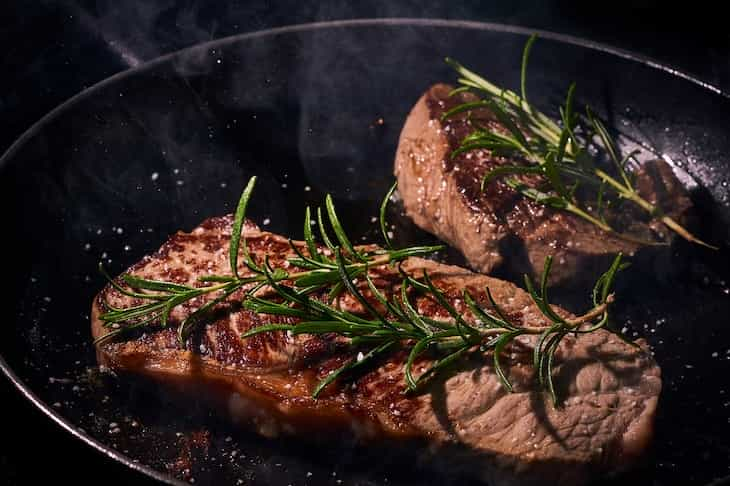Our body needs vitamins and nutrients to stay healthy and strong, but more isn't always better.
While iron is necessary for our bodies, you can also eat too much of it, which can lead to imbalance.
Here are a few signs that your diet contains too much iron.

Feeling Tired
If you're often feeling tired or exhausted, it could be a sign of too much iron. Pay attention to whether this tiredness is more than usual.
Digestive Issues
Experiencing stomach problems like nausea, vomiting, or abdominal pain can be linked to excess iron in your diet.
Joint Pain
Too much iron may cause joint pain or discomfort. If you notice unexplained pain in your joints, it's worth considering your iron intake.
Changes in Bowel Movements
Watch for any changes in your bowel habits. Too much iron can lead to constipation or other digestive issues.
Metallic Taste
An odd metallic taste in your mouth that persists could be a clue. It's not a common taste, so pay attention if you notice it.
Discoloration of Skin
In some cases, excessive iron can cause your skin to take on a bronze or grayish hue.
If you notice a change in skin color, it's essential to investigate.
Difficulty Breathing
If you find yourself having difficulty breathing or shortness of breath without an apparent cause, it might be linked to excessive iron levels.
Hair Loss
Too much iron in your system could lead to hair loss. If you notice more hair shedding than usual, consider your iron intake.
Irregular Heartbeat
Iron overload may affect your heart rhythm.
If you experience irregular heartbeats or palpitations, it's a sign to consult a healthcare professional.
Seek Professional Advice
If you suspect you're getting too much iron or experience several of these signs, it's crucial to consult with a healthcare provider.
They can perform tests to determine your iron levels and guide you on adjusting your diet if necessary.
Previously, we talked about conger eel benefits.












